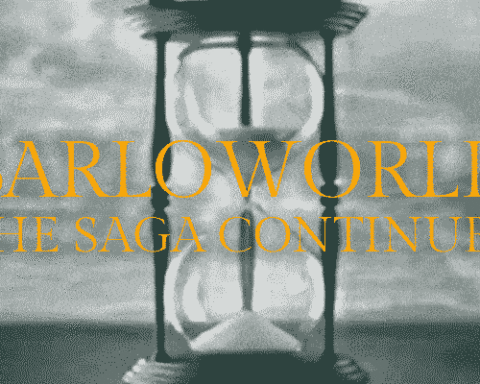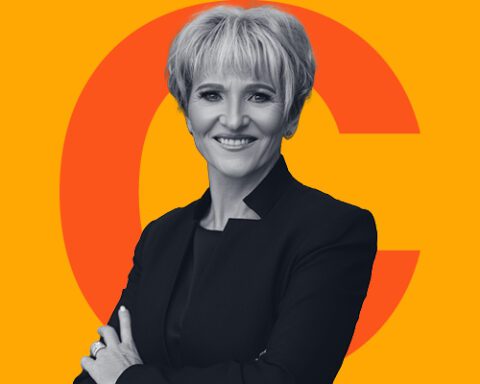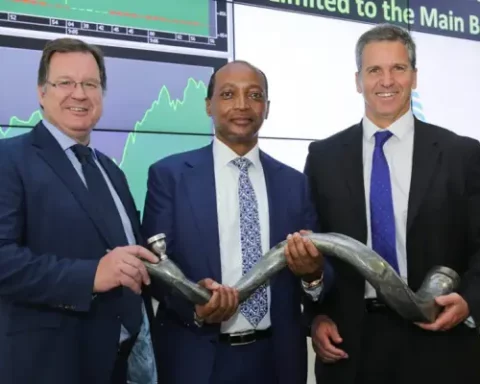In a landmark case for corporate accountability, the Supreme Court of Appeal (SCA) has rejected Steinhoff’s attempt to keep its 7,000-page forensic report secret, ruling that amaBhungane and the Financial Mail have the right to be given the entire document.
The retailer, one of the top 40 largest companies on the JSE at one point, collapsed spectacularly after it admitted to “accounting irregularities” in December 2017, with its stock losing 99%. It remains the largest corporate collapse in South Africa’s history, with its accounts having been padded with R106bn in “fictitious” or “irregular” income, masterminded by former CEO Markus Jooste, who shot himself in March, the day before he was due to appear in court on fraud charges.
But despite the seven-year gap, Steinhoff has persistently refused to release the full forensic report, which was compiled by PwC in 2019, to the two publications. Though Western Cape High Court judge Gcinikhaya Nuku ruled in May 2022 that it ought to do so “in the public interest”, the company appealed to the SCA.
Steinhoff’s appeal has now been comprehensively dismissed in a 41-page ruling in which all five judges concurred. The court said Steinhoff cannot hide behind “legal privilege” as grounds for not revealing that report, but more profoundly, there would be an overriding public interest in making that report public.
“There is simply no basis to shield the report from public scrutiny,” the judges said. “The public interest, more specifically, the right of South African society at large to know the facts about the Steinhoff scandal, goes beyond the narrow interests of Steinhoff, and is best served by exposing the nation’s biggest corporate scandal through complete transparency, to avoid a recurrence,” it said.
The company now has 10 days to hand over the PwC report, unless it appeals to the Constitutional Court.
This case has been keenly watched by other companies that have also been victims of fraud. Sugar company Tongaat Hulett followed Steinhoff’s template, asking PwC to investigate a R12bn fraud discovered in 2018, and then refusing to release that report. Others that have commissioned forensic reports on which appeals may now be made in the public interest include Eskom, technology company EOH and petrochemical company Sasol.
In the end, the five judges agreed with all the arguments put forward on behalf of the media houses by Wim Trengove SC, who acted for the media houses, as did law firm Webber Wentzel.
Legal experts describe this ruling as a profound victory for accountability.
“It’s a remarkable ruling and an immense vindication for the public’s right to access information,” says Ben Winks, an advocate specialising in media law. “There have [been] many legal developments in recent years to make companies more transparent and accountable to the public, and this judgment is a critical step in enhancing this transparency.”
Dario Milo, a partner at law firm Webber Wentzel, says this is a “very powerful ruling on applying the public interest override to access to information cases, and is now the leading case on the issue”.
Making new law
Steinhoff had argued in court that the report was “legally privileged”, as PwC had been commissioned by the board to investigate “accounting irregularities” so that it could pursue litigation against those responsible.
But the judges didn’t buy that, saying “there is no hint” that Steinhoff commissioned the report so that it could embark on litigation.
“PwC was employed on behalf of Steinhoff to do certain work, to investigate accounting irregularities and produce a report. But that work was not communicating with Steinhoff’s attorneys to obtain legal advice, nor in contemplation of some litigation,” it said. “As a result, legal privilege does not apply.”
The court said it is clear that the “dominant purpose” of commissioning the forensic report was to investigate the fraud, so that Steinhoff could publish its true accounts.
“Given the dominant purpose for which the report was prepared, its disclosure is justified,” the judges said. They said the proper test in cases like this should be that if a “dominant purpose” of a report is to obtain legal advice or for litigation, then it remains “privileged and shielded from inspection” – which wasn’t the case with Steinhoff.
Milo says this is notable, as it “develops the law on legal privilege, by looking at the dominant purpose for which a report was commissioned”.
Nonetheless, the court said that even if legal privilege had applied, Steinhoff had waived this privilege by publishing an 11-page overview of the findings in 2019, which confirmed the essential tenets of the fraud.
Finally, the judges said that, in any event, it is clear the “public interest override” in the Promotion of Access to Information Act should apply, which would justify the release of the report.
“There can be no question that the disclosure of the report would reveal both evidence of a failure to comply with the law; and that its disclosure is in the public interest,” it said.
While Steinhoff had argued that handing over the report to the Financial Mail and amaBhungane would harm it, the court said these were “superficial assertions”.
Equally, its claim that to reveal the report would alert the wrongdoers, who could then take pre-emptive action, is “illogical” the court said. “Steinhoff has made the report available to law enforcement agencies, and the persons investigated or prosecuted would be entitled to it.”
Though Steinhoff had tried to introduce a new argument – that to release the report would infringe European data protection laws, similar to South Africa’s Protection of Personal Information Act – the court rejected this too. It said there was “no adequate explanation” why it had not argued this in the first place, in the high court, and “the potential regulatory risk to Steinhoff is overstated”.
Winks says it is a ruling that changes the game quite dramatically when it comes to legal privilege – something which the courts have been reluctant to pierce in the past.
“This is a ruling which sends a strong message that where there is corporate malfeasance, there is nowhere to hide,” he says. “It means that where there is an overriding public interest, no-one will be able to claim legal privilege to keep wrongdoing secret”.
Sign up to Currency’s weekly newsletters to receive your own bulletin of weekday news and weekend treats. Register here.









